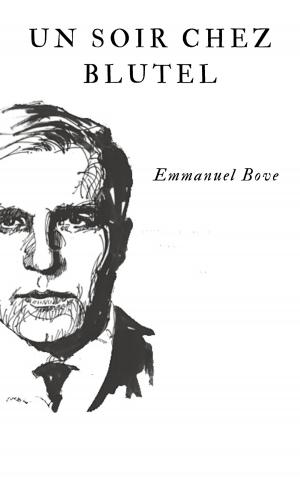| Author: | Susannah Carlson | ISBN: | 9781945467134 |
| Publisher: | Darkhouse Books | Publication: | September 5, 2018 |
| Imprint: | Language: | English |
| Author: | Susannah Carlson |
| ISBN: | 9781945467134 |
| Publisher: | Darkhouse Books |
| Publication: | September 5, 2018 |
| Imprint: | |
| Language: | English |
When we started this project eight months ago, we had no way of knowing how bad things would get or how timely the final product would be. The idea of sanctuary has become a flashpoint. Empathy and kindness seem, on the surface, to have taken a backseat to hatred, nationalism, and fear. Yet, while some spew hatred, still more speak out on behalf of kindness. Such scenarios are playing out around the world, as war and economic and environmental pressures have driven people from their homes, seeking sanctuary and too often being turned away or worse.
The fifty pieces you find here were gleaned from over 700 submissions. They explore the concept of sanctuary from angles direct and oblique, political and comical, religious and secular.
Some approach the sanctuary itself, the structure or the institution. Nancy Cook’s two stories, Illuminations and Illusions and The Afterlife, were written during a residency in a 19th century insane asylum, the stories pulled from old newspapers and brought to life in her deft prose. Several pieces deal with shelters, both animal and human. Leslie Muzingo’s story, Heroes on the Ceiling, and Joyce Kryzak’s essay, In the Whispering Breezes, explore the experience of adults and children at battered women’s shelters, while Jennifer Stuart’s story, House for Girls, introduces us to youthful victims of human trafficking, and Gayla Mills’s essay, Becoming Human, brings us inside an animal shelter and the heart of one who works there.
Other authors approached sanctuary from the point of view of those who seek it: refugees and escapees of both the innocent and the criminal kind, sometimes blurring the lines between. Michelle S. Myers’s essay, Communion on the Road, relates her experience escorting “barely documented” Central American asylum seekers to submit their applications, and Jennifer Stuart’s story, The Other Side, gives us a moment in the life of one such refugee on the first steps of her journey to America. Caroline Taylor’s story Creature of Habit, Charlotte Platt’s, Claim Sanctuary, and John M. Floyd’s, The Blue Delta, tell the stories of fugitives whose quest for sanctuary have very different ends, while Jesse Falzoi’s story, With Every Thought, tells of a bittersweet experience housing a Syrian family before they move on to their new lives.
Several pieces are harder to pin down, but the concept is still there. Gina Grande’s flash piece, Drag, explores the safety to be found in physical self-transformation, while Scott Archer Jones’s story, Contentment, introduces us to an aging hedonist who seeks comfort in the hand of a friend, and Sage Kalmus’s story, The First Lo’ihian, places one young man’s sanctuary 50,000 years in his future, on an island that today is just beginning to be born. Ed McCourt’s essay, What We Leave on the Curb, finds solace in the face of death, in the rebirth of a bicycle, while a physician-priest seeks sanctuary in the bottle in Nick Bouchard’s story, Father Pearson’s Last Day.
It’s a cold and disquieting world out there. I hope you find some comfort in these pages and will offer the same to any strangers who show up at your checkpoints or wash up on your shore.
—S.C., June 2018 Sunnyvale, California
When we started this project eight months ago, we had no way of knowing how bad things would get or how timely the final product would be. The idea of sanctuary has become a flashpoint. Empathy and kindness seem, on the surface, to have taken a backseat to hatred, nationalism, and fear. Yet, while some spew hatred, still more speak out on behalf of kindness. Such scenarios are playing out around the world, as war and economic and environmental pressures have driven people from their homes, seeking sanctuary and too often being turned away or worse.
The fifty pieces you find here were gleaned from over 700 submissions. They explore the concept of sanctuary from angles direct and oblique, political and comical, religious and secular.
Some approach the sanctuary itself, the structure or the institution. Nancy Cook’s two stories, Illuminations and Illusions and The Afterlife, were written during a residency in a 19th century insane asylum, the stories pulled from old newspapers and brought to life in her deft prose. Several pieces deal with shelters, both animal and human. Leslie Muzingo’s story, Heroes on the Ceiling, and Joyce Kryzak’s essay, In the Whispering Breezes, explore the experience of adults and children at battered women’s shelters, while Jennifer Stuart’s story, House for Girls, introduces us to youthful victims of human trafficking, and Gayla Mills’s essay, Becoming Human, brings us inside an animal shelter and the heart of one who works there.
Other authors approached sanctuary from the point of view of those who seek it: refugees and escapees of both the innocent and the criminal kind, sometimes blurring the lines between. Michelle S. Myers’s essay, Communion on the Road, relates her experience escorting “barely documented” Central American asylum seekers to submit their applications, and Jennifer Stuart’s story, The Other Side, gives us a moment in the life of one such refugee on the first steps of her journey to America. Caroline Taylor’s story Creature of Habit, Charlotte Platt’s, Claim Sanctuary, and John M. Floyd’s, The Blue Delta, tell the stories of fugitives whose quest for sanctuary have very different ends, while Jesse Falzoi’s story, With Every Thought, tells of a bittersweet experience housing a Syrian family before they move on to their new lives.
Several pieces are harder to pin down, but the concept is still there. Gina Grande’s flash piece, Drag, explores the safety to be found in physical self-transformation, while Scott Archer Jones’s story, Contentment, introduces us to an aging hedonist who seeks comfort in the hand of a friend, and Sage Kalmus’s story, The First Lo’ihian, places one young man’s sanctuary 50,000 years in his future, on an island that today is just beginning to be born. Ed McCourt’s essay, What We Leave on the Curb, finds solace in the face of death, in the rebirth of a bicycle, while a physician-priest seeks sanctuary in the bottle in Nick Bouchard’s story, Father Pearson’s Last Day.
It’s a cold and disquieting world out there. I hope you find some comfort in these pages and will offer the same to any strangers who show up at your checkpoints or wash up on your shore.
—S.C., June 2018 Sunnyvale, California















